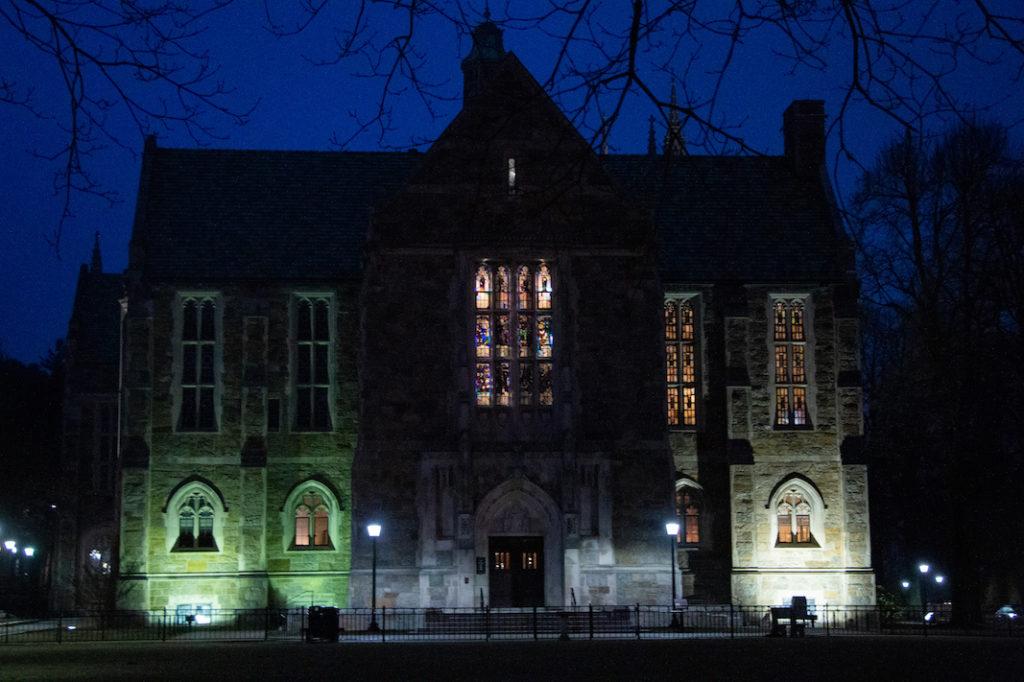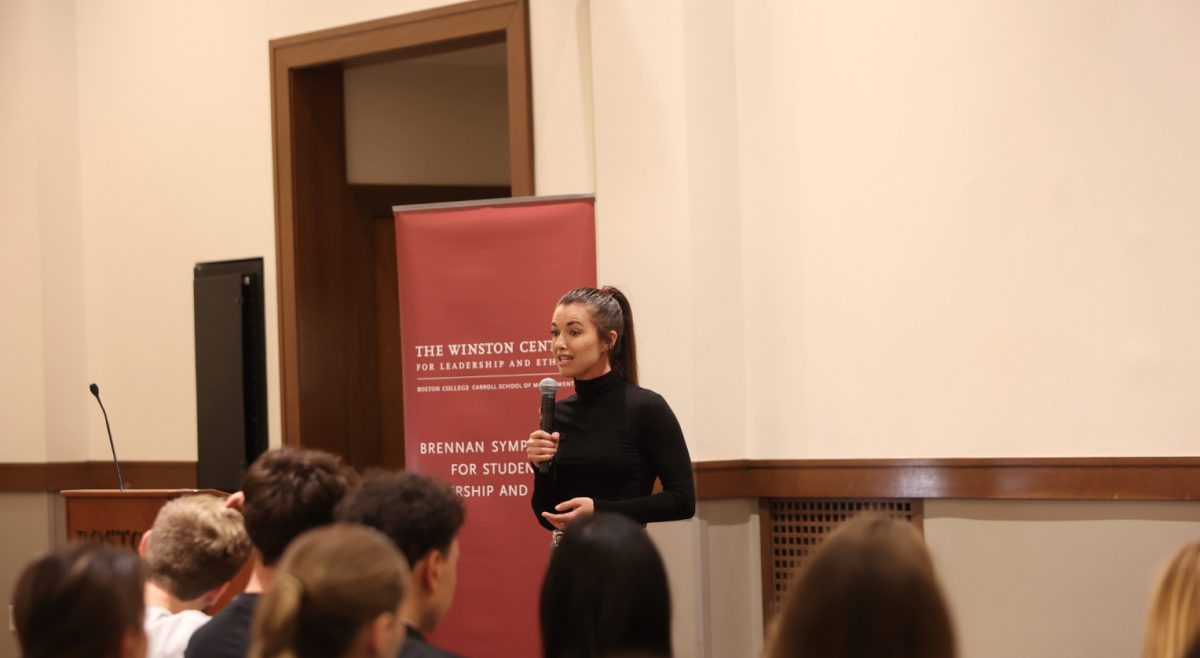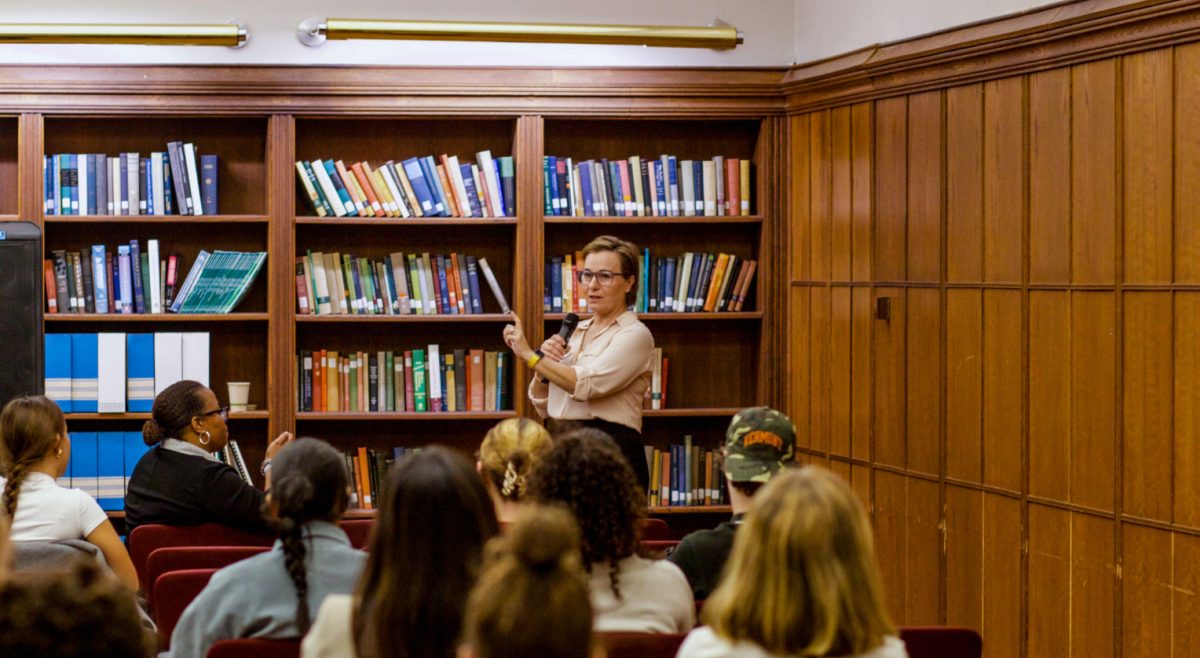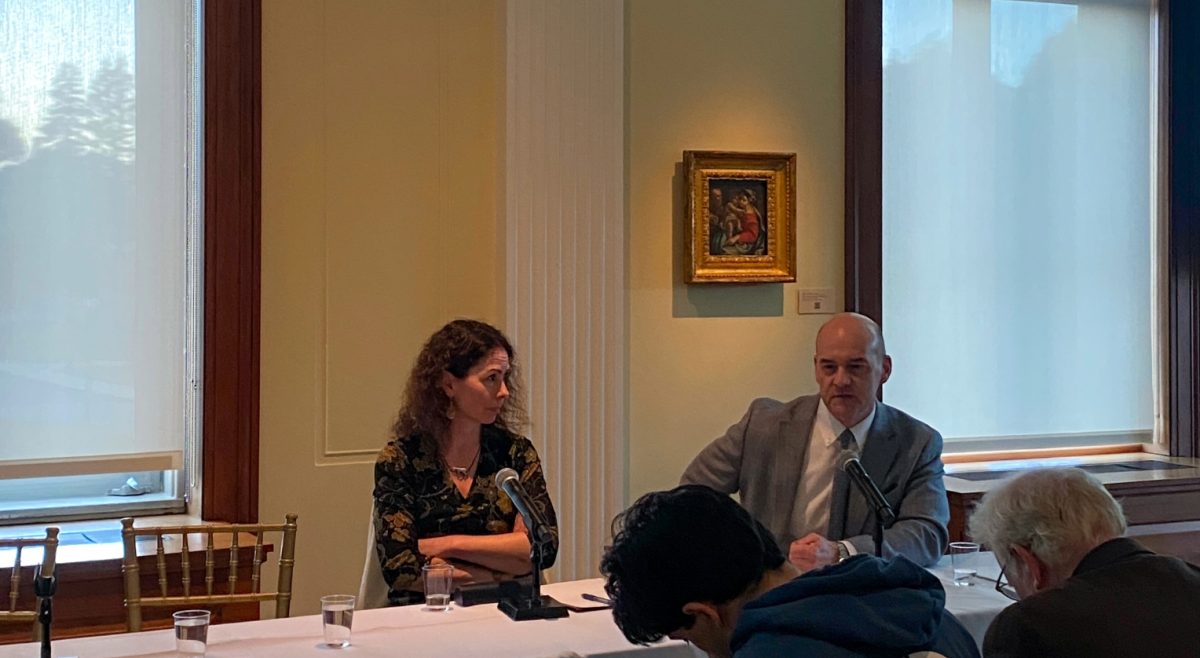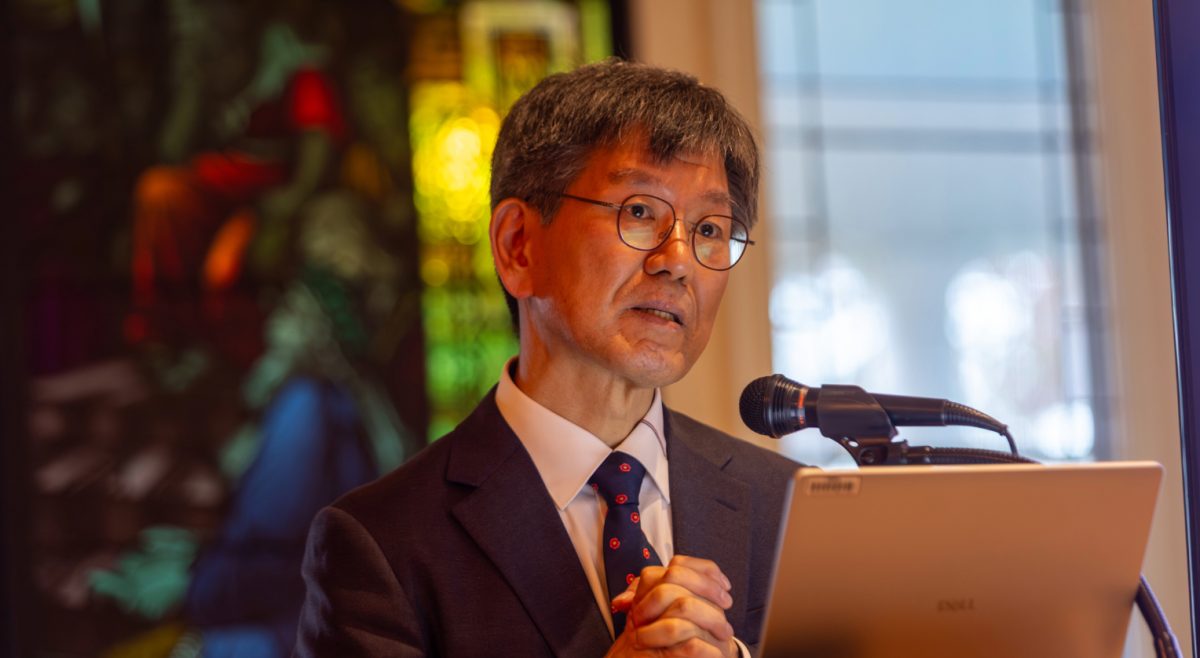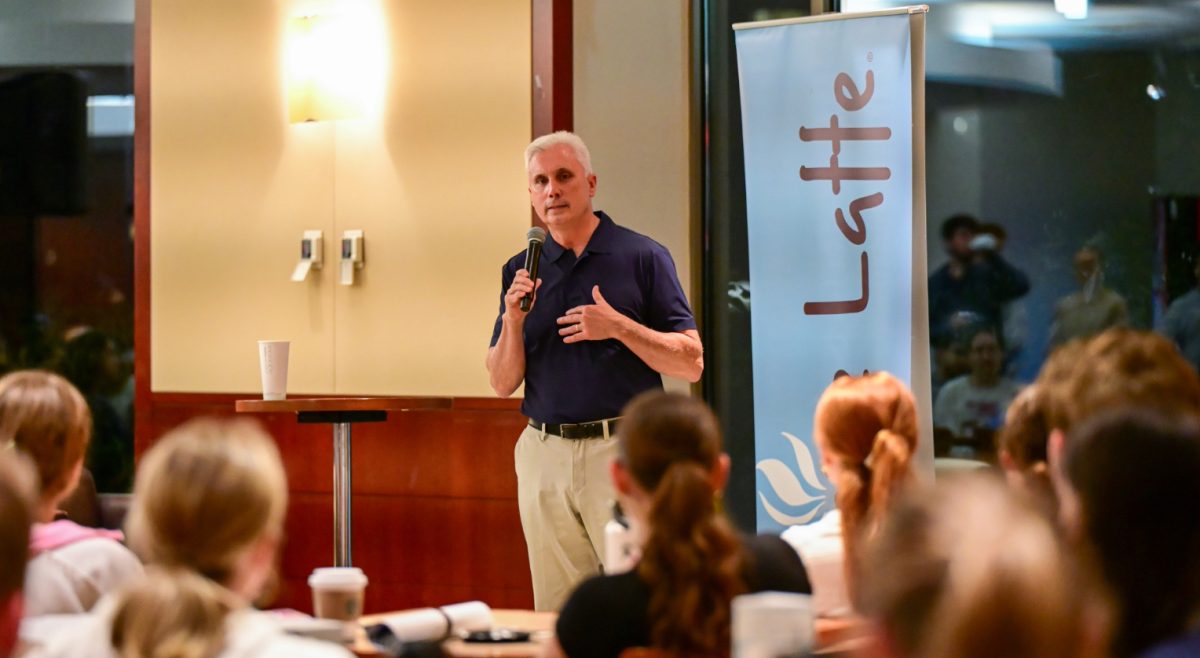The Boston College English department opened a new writing center for undergraduate students on Oct. 1. The center, which is located in room 418 of Stokes Hall South, houses 10 peer mentors, who offer appointments for students hoping to improve the strength and quality of their general writing skills.
The main coordinators of the writing center are Lynne Anderson, director of English Language Learning at BC, Paula Mathieu, an associate professor in the English department, and Marla De Rosa, director of the Writing Fellows Program.
Anderson said that members of the English department thought of creating a writing center separate from the existing Connors Family Learning Center (CFLC) when the faculty members hoped to expand existing resources for writing support.
The new writing center differentiates itself from CFLC in that all 10 of its writing consultants are current undergraduate students majoring in English. In comparison, some CFLC writing tutors are graduate students and there is a limit on how much writing assistance is available for the many students seeking writing assistance.
Besides the writing tutors at CFLC, BC’s Writing Fellows Program, created in 2004, has been the only other organized effort to help students improve writings outside classrooms. This program pairs trained graduate students to certain classes across the four undergraduate schools, but only students in those specific classes receive support from this program.
The English department sought a way to further expand access to trained mentors for all undergraduate students.
“Most universities have a tutoring center as well as a writing center… some even have multiple writing centers,” Mathieu said.
By limiting consultants to just undergraduate students, the writing center hopes to provide help from those who can better relate to a fellow student’s own class experience. Students are also encouraged to go to the center no matter what area of discipline they are coming from.
All writing consultants are currently enrolled in a one-credit, once-a-week course centered around writing tutoring, which Mathieu teaches. Emma Llosa, a Writing Center tutor and MCAS ’20, explained that the class has focused on dissecting the role of writing centers located on other college campuses.
The class participants also did individual presentations based on tutor training videos found on YouTube. Llosa, one of the three tutors who have already had appointments with students, thought the course helped her tackle the more subtle aspects of giving suggestions to a fellow student’s writing.
“I’m learning more about the art of tutoring, in addition to actually doing the tutoring. I kind of see myself as a facilitator, helping students connect with their ideas better and feeling stronger about their own skills,” Llosa said.
In addition to the course, some writing consultants went through bilingual tutoring training under Anderson. While CFLC does provide support in the form of grammar checks for non-native English writers, the writing center seeks to help international students better understand the English language rather than getting help with a specific assignment, Anderson said.
Instead of simply correcting the awkward use of an expression or tweaking style problems, Anderson believes foreign language speakers can more effectively understand the mistakes they made if their tutors are able to relate to their home languages. Anderson herself is trained in applied linguistics and had extensive experience teaching the English language in immigrant communities prior to her work at BC.
“[Being a bilingual tutor] is about being able to really understand how languages work and to give [students] strategies about how to navigate between two languages,” Anderson said.
In the near future, the writing center hopes to create a web portal for appointments and offer group workshops.
Featured Image by Celine Lim/Heights Editor

